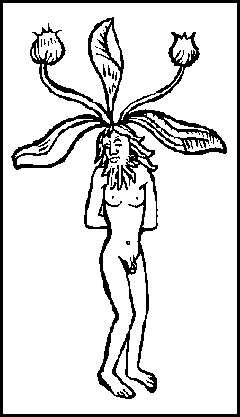Of Fathers
A Novel
Miklós Vámos
(Other Press)

Poor Hungary. The author's notes,
- One well-known fact is that Hungary and the Hungarians have lost every important war and revolution since the time of the Renaissance king Matthais Corvinus. He occupied Vienna and became Prince of Austria. He died in 1490. Since then, the nation and its heroes can be found only on the losing side.
And the Sterns and Csilligs? Well, most of them end up losing too: wars, pogroms, in the streets, shot, burned, starved. In fact sometimes Vámos seems almost too eager to get done with them and move onto the next generation. The Sterns and Csilligs are knocked off brutally, in a hurry: even after the author has made us quite fond of them.
Thus, poor old Sándor Csillag from Generation VIII gets shipped off to a concentration camp in a cattle-car, at age seventy-six, where he dies ... and "on the second day of the journey his body was thrown off the moving train into the bushes. Stray dogs and foxes had their share of the corpse."
In this obscure corner of Hungary, around Thuringen-Pecs-Nagyvrád, generations of Sterns lead their peaceful lives, amid books, running wineries and shoe-shops, filled with love, fear and prophecies. Some of the men have a cinematic ability to see deeply into the family's past; a few, it was said, could see into the future. Yet one, Balázs of Generation X, vows to no longer "attend to the past," so he rips the pages out of the book, "tore out from all the volumes of The Book of Fathers the somewhat musty pages, even the empty sheets in the volume that he had himself begun, and carefully burned the pile of rubbish."
The story has few dramatic heights or depths; it is more an even-handed report on the lives of a long line of Hungarians from the eighteenth century to now, ending with Vilmos Csillig who writes his own Book of Fathers ... a charming series of letters to his father, who, before he died, refused to tell him anything of the past:
- It's a pity that you can't now any longer by then
It would be so good to talk to you Papa
FATHER
PAPA
FATHER DEAR
We should have talked.
It would have been good to have talked more.
Or ever
Never
Csillig concludes with a quote from Carl Jung, "I am not reproaching you for anything, but what you don't get in your childhood, you will always miss."
My favorite, of all these charming, sullen, strange and wonderful Sterns, is one from Generation VIII, Sándor, the gambler who "was seized by the desire to wake up every morning in a room ... with lilacs at the window, which as he rose and opened the window wide would fill with their deep scent." When he met the Goldbaum family, with their "two young girls," he wrote in The Book:
- Perhaps it was divine inspiration that these two beauties should cross my path. We spend most of our time as a threesome. I would happily marry either of these girls, but preferably both of them.